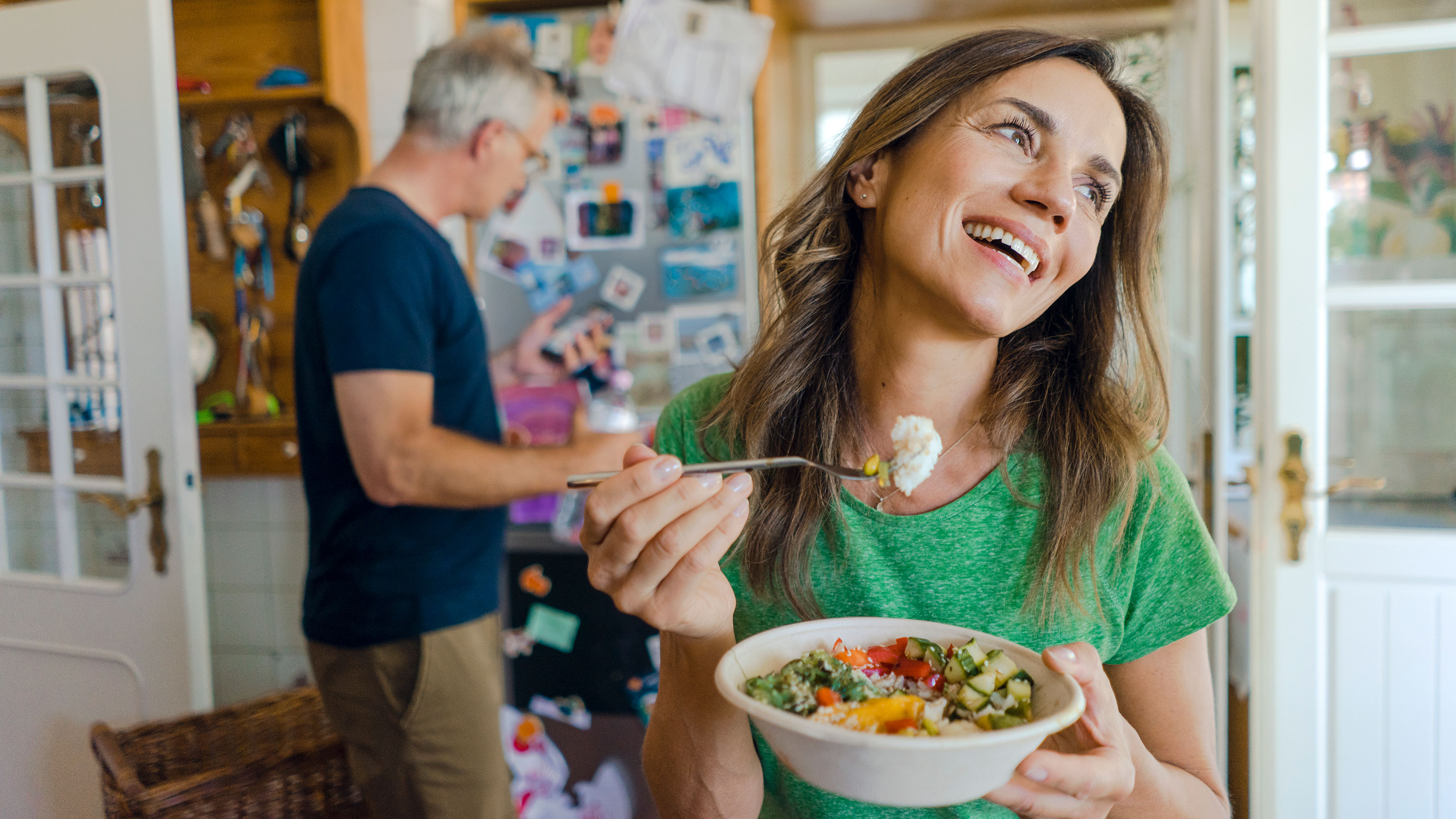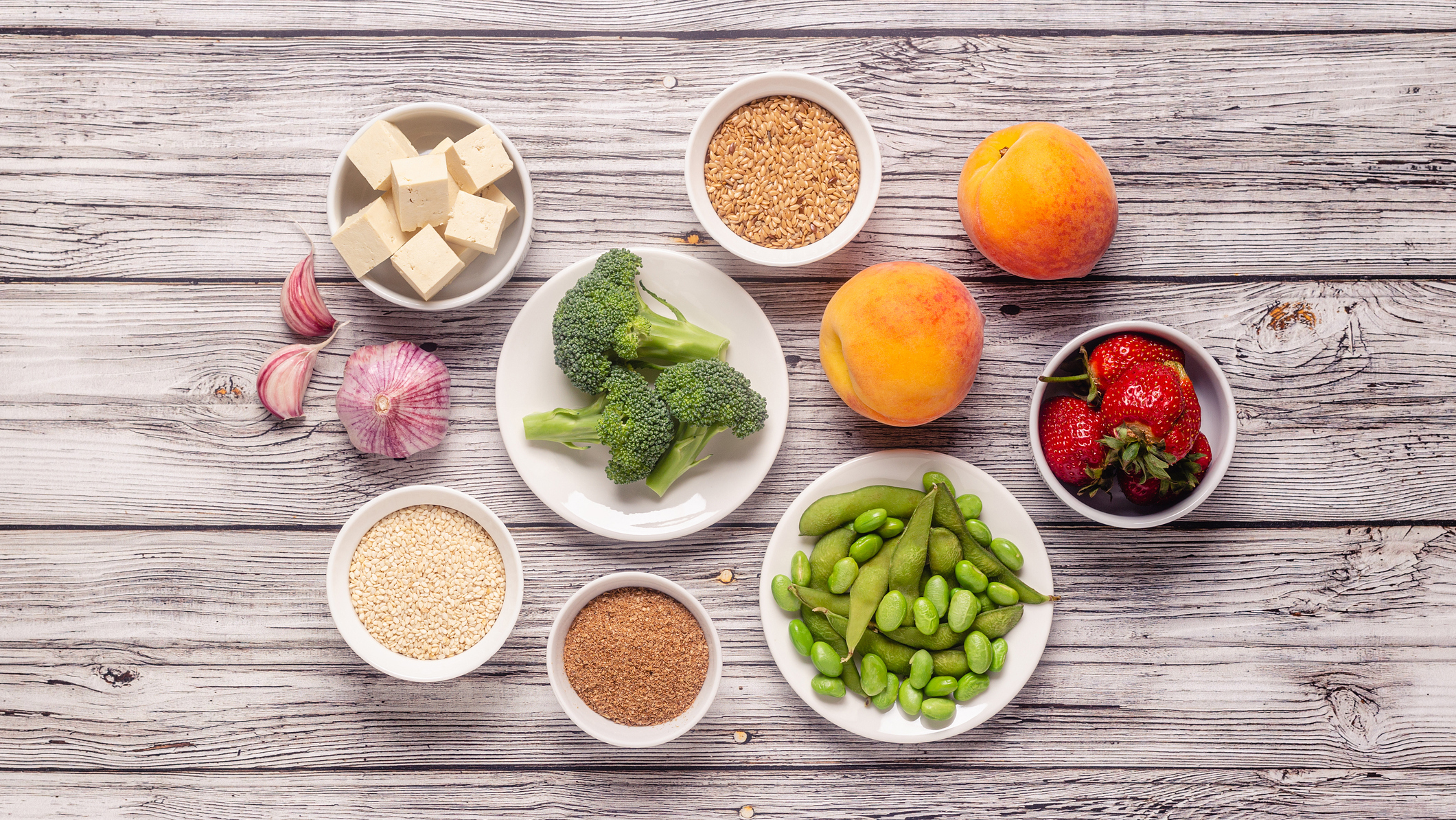Menopause diet: what to eat to ease your symptoms
Boosting your intake of healthy foods and making changes to your lifestyle can help with the effects of menopause


Start your week with achievable workout ideas, health tips and wellbeing advice in your inbox.
You are now subscribed
Your newsletter sign-up was successful
A varied, balanced diet is a must to support your overall wellbeing, whatever your age and life stage. But there are particular things to bear in mind when it comes to a healthy menopause diet.
Eating right at this time can help you keep to a healthy weight, manage symptoms and look after your health in the long term, too. Here are some of the key things you need to know about following the best diet for menopause.
- Best menopause supplements
- The best supplements for joints: fight inflammation, pain and swelling
- Best vitamins for women over 50
Avoid menopausal weight gain traps
The reasons behind menopausal weight gain are complex and not all related to hormones, according to The Menopause Doctor, Dr Louise Newsom, who explains you lose muscle at around eight per cent per decade after 40. That’s an issue because muscle singes energy, so losing it means your metabolism slows.
You may be less active than you were when younger, and your body needs less energy now - but you’ll probably still eat the same amount of calories. Additionally, if you’re stressed with work and family duties, and/or hormonal changes are bringing you down, you may turn to comfort eating.
The drop in oestrogen at menopause has been linked with gaining fat around the middle, too, so you may find your shape changes, even if you haven’t actually piled on many more pounds. Avoid fatty, sugary, processed foods, which can contribute by loading you up with excess empty calories – a diet high in nutritious whole foods is best at menopause. Watch your portion sizes – you probably don’t need as much food as you did when you were younger.
Focus on bone-health boosters
One in two women over 50 experience fractures due to weak bones, as a result of losing the bone-protective effects of oestrogen. Dairy is rich in calcium - if you have a glass of milk, a matchbox-sized piece of cheese and a small pot of yoghurt each day, you’ll easily hit your 700mg daily calcium target.
Don’t want to eat dairy as part of your menopause diet? Load up on green leafy veg, dried fruit and fortified plant milks, all rich in the mineral, and speak to your doctor about whether you need calcium supplements.
Start your week with achievable workout ideas, health tips and wellbeing advice in your inbox.
While calcium’s crucial, you also need vitamin D to absorb it properly. Summer sun is the best way to get this but take a supplement from October to March, as it’s important to keep levels steady - one study found seesawing between high and low levels at different times of the year could be as bad for your bones as lacking it all year round.
You could also top up with vitamin D foods, such as eggs and oily fish – although they don’t contain enough to skip supplementation.
Pack hormone-balancing foods into your menopause diet
Alison Cullen, nutritional practitioner and education manager at A Vogel, recommends including foods containing plant oestrogens – called phytoestrogens – which help balance falling oestrogen levels and may help ease some of your symptoms, such as hot flushes.
‘Isoflavones are a type of phytoestrogen found in soy foods,’ she says. Tuck into tofu - 100g gives you around 30mg of isoflavones, and it’s a versatile food that’s great stir-fried.
You can also find phytoestrogens in beans, pulses and flax seeds, and it’s really worth making an effort to include these in your diet. You can add beans and pulses to stews, soups and curries, and add flax seeds to cereal, porridge or smoothies.

Eat heart-healthy foods as part of your menopause diet
Before menopause, women’s heart risk is low because oestrogen helps prevent cholesterol sticking to artery walls and furring them up. But once you’ve lost the cardioprotective benefits of oestrogen, you’re more likely to have high cholesterol. Plus, with age, arteries stiffen and narrow.
All these factors can raise your risk of having a heart attack or stroke after menopause, especially as you get older, so it’s really important to follow a heart-friendly diet.
In general, a Mediterranean diet is best for overall health, including heart health – that means eating loads of fresh fruit and veg, olive oil, nuts, seeds and some oily fish, while avoiding meat, sugar and fried, processed foods.
Fibre’s also important for lowering cholesterol, pushing it out of the body before it can stick to artery walls. Fruit and vegetables are packed with it, so that’s another reason to eat plenty – check out our guide to easy ways to get your five-a-day. Plus it can help fill you up, meaning you’re less likely to reach for unhealthy junk food.
Charlotte Haigh has been a health writer for 20 years, contributing to a range of national magazines and newspapers. She writes about all aspects of wellness, from nutrition to fitness, and has a special interest in psychedelics and mental health. Charlotte is Chair of the Guild of Health Writers, which represents leading UK health writers. In her spare time, she enjoys vegan cookery, yoga and birdwatching. She lives in south-west London with her two cats.
